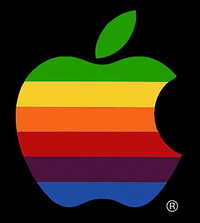Business
Apple Board vacancy: Good riddance to Eric Schmidt
Apple on Monday said that Google CEO Eric Schmidt won't have a seat at the next meeting of its board of directors. The only question was why did it take so long for push to come to shove for this joker.


“Eric has been an excellent Board member for Apple, investing his valuable time, talent, passion and wisdom to help make Apple successful,” said Steve Jobs, Apple’s CEO. “Unfortunately, as Google enters more of Apple’s core businesses, with Android and now Chrome OS, Eric’s effectiveness as an Apple Board member will be significantly diminished, since he will have to recuse himself from even larger portions of our meetings due to potential conflicts of interest. Therefore, we have mutually decided that now is the right time for Eric to resign his position on Apple’s Board.”Come on! Maybe he's going to spend some more time with his family too. How many announcements of competing products does it take for the Apple board to figure out that a board member isn't pulling his or her weight? The writing for this ejection has been on the wall for years. Was it the Chrome OS? Was it a competing browser? Was it Google's cloud applications that compete against Apple's host-based and online sync services? Where is the "passion" to make Apple successful here? (Note that I'm not talking here about the responsibilities of the board for governance here and their possible dropping the dime on Steve Jobs' absence and the lack of transparent planning for succession. Board members are also supposed to bring something of an industry perspective.) What about the other members of the board? Al Gore is known to be a longtime Mac user and his media company no doubt uses Macs in content production. But what about Bill Campbell, Chairman of Intuit, who came on the board in the late 1990s, right around the time that Intuit decided to stop its Mac versions? During the 1998 Apple shareholders meeting, Steve Jobs admitted that Apple had "stumbled" by not stopping such an important product from leaving the Mac platform. Of course, the community wondered what good Campbell was doing for Apple other than warming the cushion on his board seat. Where was the "thinking different" down at Intuit, right? Campbell kept his seat. While Intuit titles have returned to the Mac, the distance between Mac versions and Windows versions remains vast and show no sign of parity. Take for example, Quicken for Mac. In early 2008, Intuit said that it would release an update later in the year. This past January, the company said it would be this year. Nope, no go. Facing rumors that the mounting delays would become permanent — can we say deja vu all over again? — the company last month announced on the Quicken Blog that what will now be called Quicken Financial Life for Mac won't arrive until 2010. Or so it hopes.
Feedback from Mac customers led us to rethink our approach to developing Quicken for Mac. We went back to the drawing board and are making changes to everything from what the program does to how it looks. We spent extra time building a reconcile mode for the new register, a robust Windows-to-Mac transfer function for new Mac users (and existing customers running Quicken on a Windows virtual machine), and redesigned the experience to make it look and feel like a native Mac application should. We understand our loyal Mac customers are disappointed that the product won’t be in stores until after the first of the year. For that, we apologize. We think taking our time to get it right will be well worth it and will make Mac customers even more excited when they use the new Quicken for Mac early next year.Right! And guess what? On Oct. 12, you'll be able to pre-order Quicken for Mac (the blog really hasn't figured out the new branding). So, they must be serious this time. Was the decision to bring on Campbell in 1997 part of a strategy to show Apple's customer base and the investment community that the company could continue to provide mainstream computing platform? This concern is hard to imagine today, as switchers keep coming to the Mac and Apple keeps making gains in the enterprise segment. Check Out: Apple: iPhone adoption in the enterprise to climb In the summer of 1997 at the Macworld Expo in Boston, Steve Jobs told the audience that the “era of competition between Apple and Microsoft is over.” He then announced a patent sharing deal between the companies and a modest investment by Redmond in Apple. Read: Better living without MS Office More to the point, Office for the Mac would continue. And it has continued, but not without significant developmental pains, parity problems and missed ship dates. Sound familiar? Now, a dozen years later, Mac users are taking a hard look at alternatives to Microsoft Office. Perhaps the same thing will happen with Quicken.